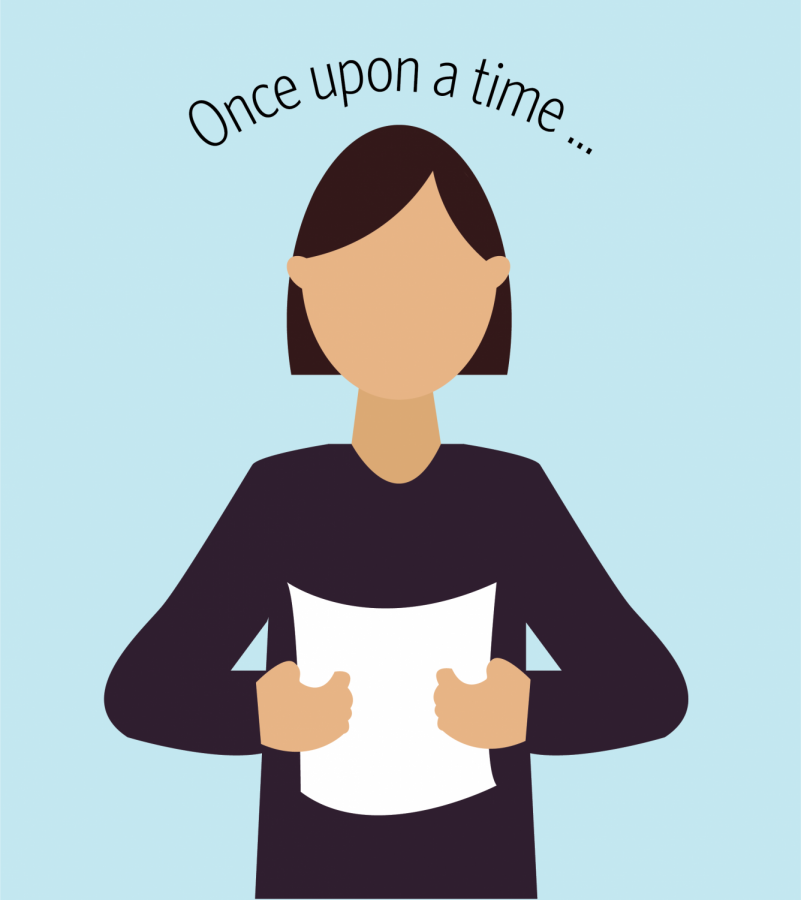Storytelling offers happy (job) endings
Jan 28, 2019
While time management, strong communication and organization are all fine skills to present on a resume, there’s an ability that is becoming more marketable than all the rest in today’s job market. It’s not one that goes on your resume, either. It’s one that comes into play once you are past the resume-review stage, and into the scary part: the interview.
The skill I’m talking about here is storytelling. It sounds strange, I know, but right now, storytelling-based interviews are very in style for companies looking to hire new graduates. These interviews focus on what you have already accomplished as a person and how you handle things like working with others or facing difficult tasks, while simultaneously testing your ability to think and communicate effectively on the spot.
This can sound daunting, but fear not. There are lots of tricks to rocking a storytelling-based interview. Once you have these down, you will be ready for any “tell me a story about a time when …” question.
The big idea: Have your stories holstered
The single most important part of going into one of these interviews is to have your story locked and loaded, so to speak. As soon as an interviewer asks you a question, it’s best to take a moment to think (avoid using fillers like “hm” or “um”), but then quickly be able to dive into the story you want to tell.
Get The Daily Illini in your inbox!
The best way to do this is to have a couple stories prepared. Before the interview, make a list of experiences from your life that would be easy for you to talk about and will also hit one of the main types of stories interviewers look for.
Group or teamwork experience
There is usually at least one, if not many, questions that ask about a time you worked in a team. This might be a time you led a team, were simply part of a team, or even had difficulties working with a team. So before going into an interview, have at least two stories about teamwork in mind. Examples include athletic teams, groups projects or coworkers who you worked with closely.
It’s also important to tell stories that include traits the interviewer is looking for. For instance, a question about a time you led a team will be implicitly asking about your management style, whether or not you can stay organized under pressure and if you’re a fair leader when in charge of a lot of people. Make sure that when you tell your story, you include details about the type of leader you are as well as what your team was able to achieve.
Over-achiever edition
There is also usually a question about a time that you went above-and-beyond, where you did much more than what was asked of you at a job or in school. This type of question is generally pretty straight forward, so you usually only need one strong example for this particular question.
In this story, the interviewer first wants to see if you can come up with a time where you overachieved. This is an important personality indicator, since someone who overachieves obviously cares about their work and is passionate, rather than someone who’s just doing work to get a paycheck. The interviewer also likely wants to see what your definition of overachieving is.
If you tell a story about a time you made it to work a few minutes early, they might not call you back for a second interview. If you tell a story about a time that you invented a project for yourself and saw it through to the end, you will likely be considered more valuable by the interviewer.
A story of adversity
Lastly, stories of difficult times show an interviewer that you will not stop working hard even when things get complicated. Try to have one story that is customer-service based, one that is team-based and one that is personal.
The personal story shows them that you can sympathize with other people. The customer-service based allows them to see that you can maintain your composure. And the team-based story shows them that you can continue to work well in a group even when things get hard.
Serina is a senior in LAS.






